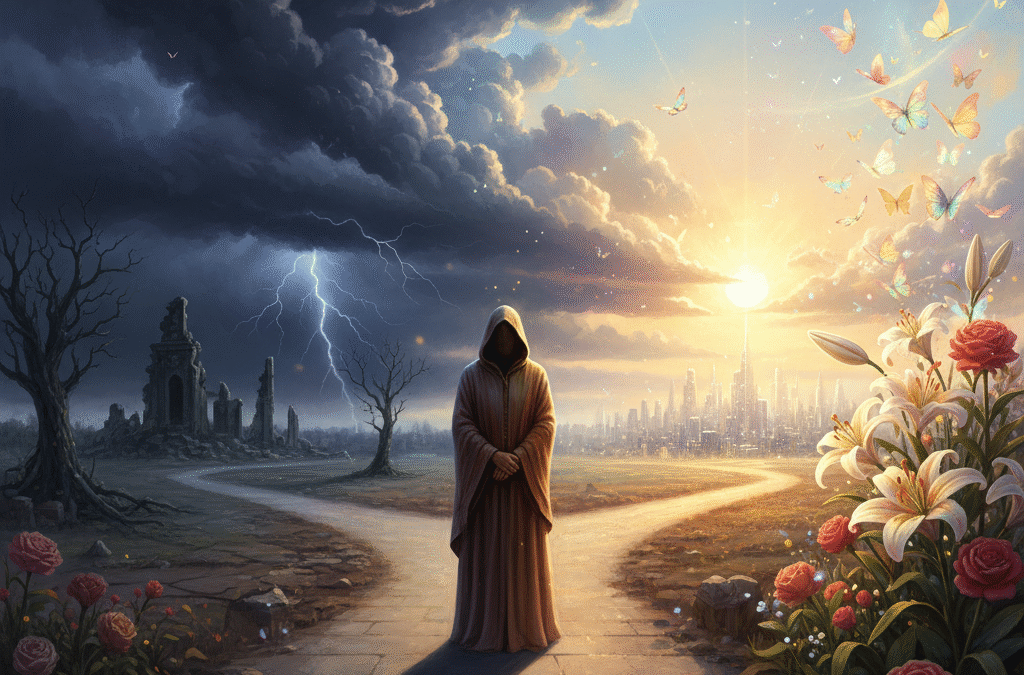We are creatures of time, yet in a much deeper way, we are creatures of narrative. We’re bound by memory in the past, by sensation in the moment, but it’s in the future that our imagination truly comes alive. That’s where we put our desires, hopes, and fears. But here’s the blinding paradox: do we live off what we know is real, or off the illusions we build around what might be?
The future, by definition, does not exist. It is always a part of time ahead, never something we can hold at the present moment. And yet, the future guides us, commands our decisions, and shapes our existence. Everything that we do is more or less justified by some theoretical “then.” We obtain degrees so that we might find employment, we labor so that we might produce security, and we save in order to retire, all sacrificing today’s delight for dividends sometime later. In a way, our lives are less about living now and more about living in the stories that we tell ourselves regarding how things will be later.
These stories are compelling. For some, the future is a warm tale: technology shall liberate us, human effort shall conquer wretchedness, or personal desire shall be gratified. For others, it’s a horror tale, predicting environmental disaster, social disintegration, or irrevocable degeneration. The two tales have an impact on us: the positive one stimulates us to strive for it, while the negative one stimulates us to prepare or to despair. But in both cases, the storytelling itself is what’s driving us along, as opposed to present reality.
This leaves an uncomfortable question lingering: if the future is imaginative and we’re living there, does that mean that our own lives are imagined as well? Someone might argue yes, because we live towards a not-yet-existing future, we’re always living in some sort of backward-looking story. Our reality is filtered by a projected “yet-to-come.” Another perspective, however, views the act of storytelling about the future as what truly exists—we don’t exist in the future, but we do use our very human faculty of imagining and planning. The fiction is a navigational aid that directs our now.
All of this has to do with the philosophy of meaning. The moment itself, with its naked immediacy, can appear evanescent and not solid enough to serve as the basis for human purpose. To bring life into meaning, we create myths about where it’s going. Without fiction, we might dissolve into an inchoate “now,” a vacuum with no direction. Our myths about what lies ahead—individual, cultural, cosmic—ground us in a schema to make life meaningful.
But there’s a danger here. Being too much in the future can mean forgetting the depth of the present. People can sacrifice their happiness for things that never come about, or live constantly in fear of things that never come to pass. So the future we imagine can become a despot, ruling the here and now. Perhaps real wisdom lies in taking the middle ground: acknowledging the imaginative power of the future as a kind of fiction but at the same time staying rooted in the here and now.
The future may never actually touch us, perhaps, but our existence in relation to it is the most concrete thing about being human. We are, very literally, visitors through time, present all at once in what is, what was, and, most acutely, in what can yet be.
